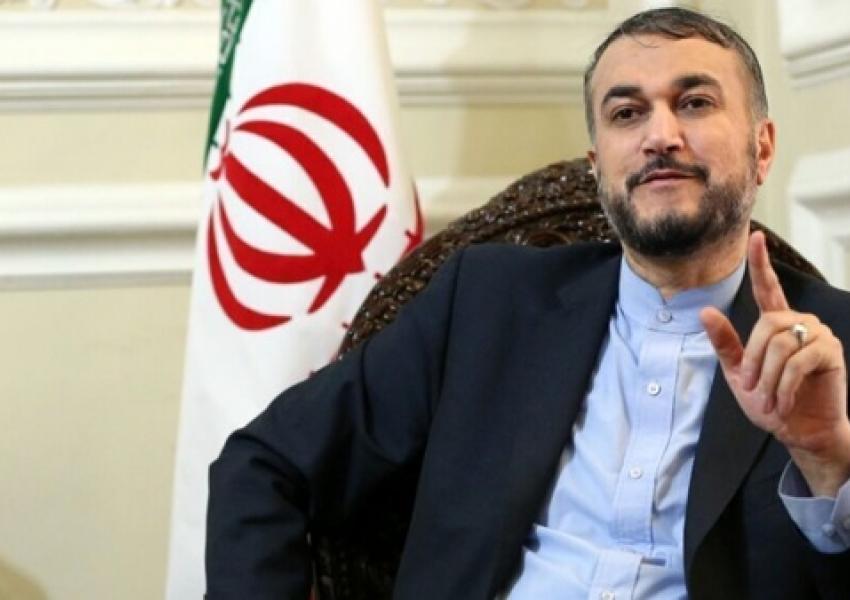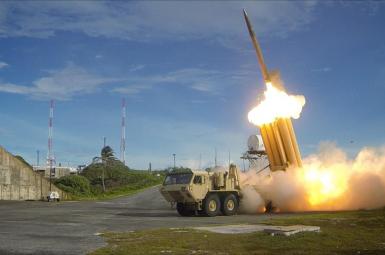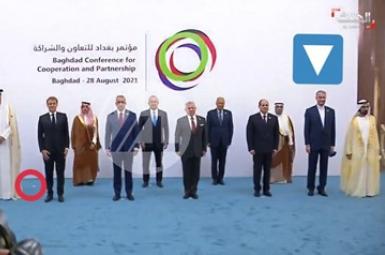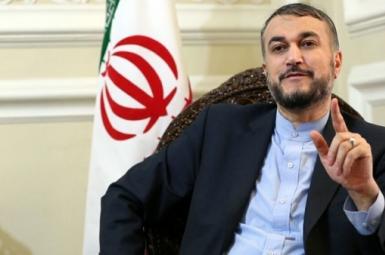
Iran FM Says Raisi Did Not Go To Baghdad Because Of 'The French'
In a live IRIB television interview Monday evening, Iran's foreign minister, Hossein Amir-Abdollahian, said Saudi representatives had felicitated him at last week’s Baghdad Conference on Cooperation and Partnership and awaited the resumption of talks with Tehran.
A fourth round of Iran-Saudi talks in Baghdad would be held once a new government was fully formed in Tehran, Iran's ambassador to Iraq, Iraj Masjedi, said Monday, with the Saudis understanding that it would take “two to three months for the new government to take office and plan for any decision.”
Iraqi officials said last week the conference could help promote rapprochement between Tehran and Riyadh, which Iraq needs as an Arab state with deep cultural and economic ties to Iran. In his television interview, Amir-Abdollahian stressed that the conference’s main role had been to "help Iraq in various ways" including its “return to its natural status in the region as an active force."
The conference was also overshadowed by the August 26 bombing in Kabul by the Afghan affiliate of the Islamic State group (Isis, Daesh), which in 2015 controlled around a quarter of Iraqi territory as well as a swathe of Syria. The final communique stressed cooperation against ‘terrorism’ and Covid-19.
In his first international trip in his new post, Amir-Abdollahian expressed skepticism over the French role at the conference, of which it was joint organizer, and stressed rather his meetings with regional leaders, including vice-President and Prime Minister Mohammed bin Rashid of the United Arab Emirates and Qatari officials.
Trip to Paris?
Amir-Abdollahian said that "foreigners' wish to play a role in the new arrangements in the region is naturally not Iraq's, or the region's, interests," and that President Ebrahim Raisi (Raeesi) had decided not to go to Baghdad because of the French presence. "Eventually it was decided that I take part,” the foreign minister explained.
Amir-Abdollahian said that French officials at the conference had been "very interested to use the opportunity to get close to Iran" and that French President Emmanuel Macron had twice personally expressed interest in Amir-Abdollahian visiting Paris.
While Macron has been asserting France’s role in the Middle East − notably in rallying support for Lebanon in the wake of the collapse of its economy and water and electricity supplies – Iran has opposed Western influence in the region for years, especially the presence of Western powers in the Persian Gulf. Tehran also wants Europe to counter United States President Joe Biden in continuing ‘maximum pressure’ sanctions to secure Iranian concessions in the Vienna talks over Tehran’s nuclear program.
Not evading
Amir-Abdollahian said Iran was not "evading" the Vienna talks, suspended since June with the transition in Tehran, but wanted "tangible achievements." As a signatory of the 2015 nuclear agreement, the JCPOA (Joint Comprehensive Plan of Action), France has participated in Vienna alongside remaining JCPOA signatories China, Germany, Iran, Russia and the United Kingdom, with the indirect participation of Washington, which left the JCPOA in 2018 as President Donald Trump imposed the ‘maximum pressure’ sanctions that sent the Iranian economy into two years of deep recession.
"We have told the other side that they must change their approach in talks,” Amir-Abdollahian said. “We do not accept wastage of time… other sides should be logical at the negotiation table instead of [issuing] unconstructive messages and statements."
Amir-Abdollahian brushed off criticism from some Western, Arab and Iranian media for "undermining diplomatic protocol" or "a blunder" by standing alongside heads of state for a photo-call in Baghdad. "I stood in the real place of the Islamic Republic and its representatives,” he said.









